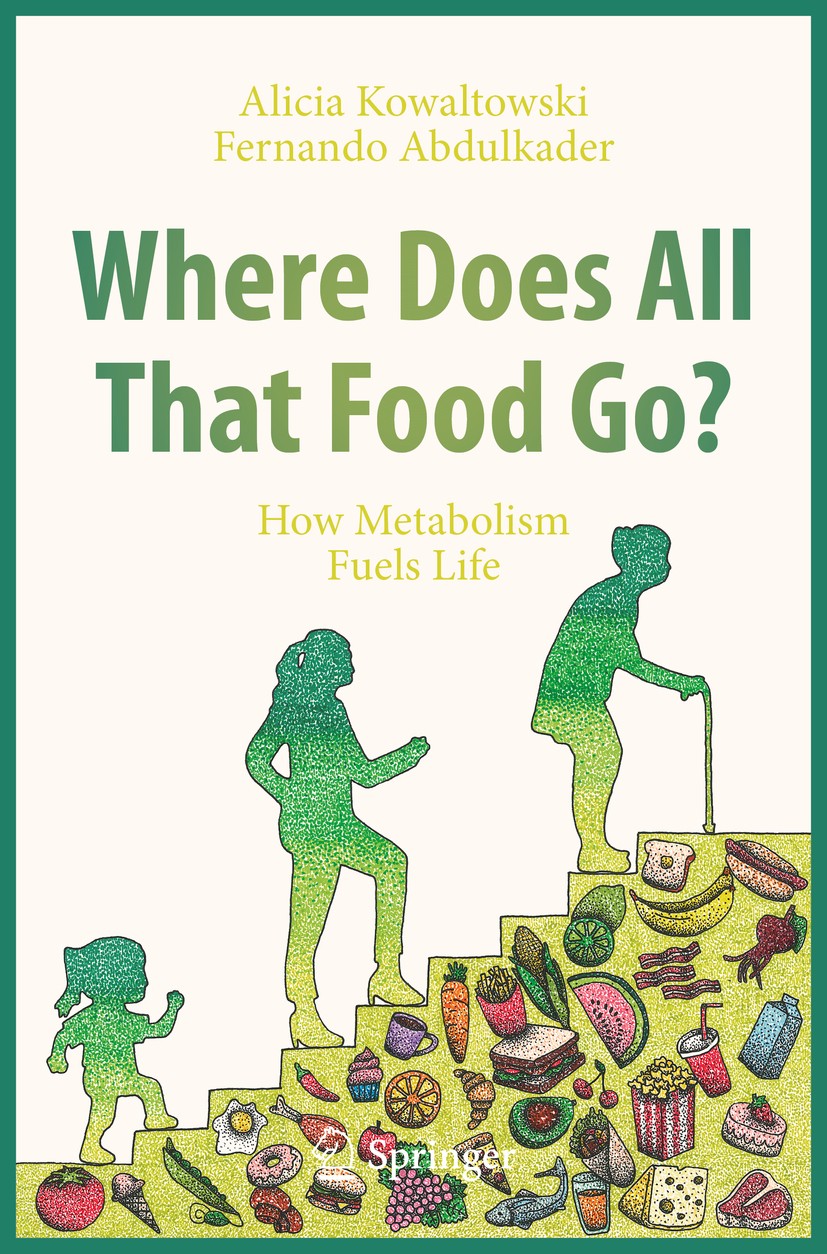| 書目名稱 | Where Does All That Food Go? | | 副標(biāo)題 | How Metabolism Fuels | | 編輯 | Alicia Kowaltowski,Fernando Abdulkader | | 視頻video | http://file.papertrans.cn/1028/1027922/1027922.mp4 | | 概述 | Describes how our bodies change our food into energy and our own body molecules.Explains what metabolism is, and how it is organized, in an accessible manner for general public.Written by an active re | | 圖書封面 |  | | 描述 | .Most of us eat (or incorporate into our bodies) quite a bit of stuff that does not look, act or function even remotely like us. Unless our food mysteriously disappears inside of us, this must mean we change its molecular structure in some way. In fact, we are constantly modifying our molecules through chemical reactions, which together constitute our Metabolism. At any given moment, we transform (metabolize) millions of molecules within our bodies, building new ones, breaking down others, and exchanging them with the world around us. Metabolism is much more than the reason you gain weight when you overeat, it is a process that is so central for life that it defines what a living being is..We will explore what metabolism is, how these chemical reactions that constitute Metabolism are organized and how they are regulated (including the effects of hormones). We will follow the transformations of each type of nutrient (carbohydrates, proteins and lipids) within our bodies and cells, from the mouth, through our intestines and then within the different organs in our body. We will discuss metabolic and evolutionary reasons why so many people today struggle with excessive weight gain, and | | 出版日期 | Book 2020 | | 關(guān)鍵詞 | Diet; Carbohydrates; Proteins; Lipids; Hormones; Fat; Exercise; Diabetes; Aging | | 版次 | 1 | | doi | https://doi.org/10.1007/978-3-030-50968-2 | | isbn_softcover | 978-3-030-50967-5 | | isbn_ebook | 978-3-030-50968-2 | | copyright | Springer Nature Switzerland AG 2020 |
The information of publication is updating

|
|
 |Archiver|手機版|小黑屋|
派博傳思國際
( 京公網(wǎng)安備110108008328)
GMT+8, 2025-10-6 14:47
|Archiver|手機版|小黑屋|
派博傳思國際
( 京公網(wǎng)安備110108008328)
GMT+8, 2025-10-6 14:47


